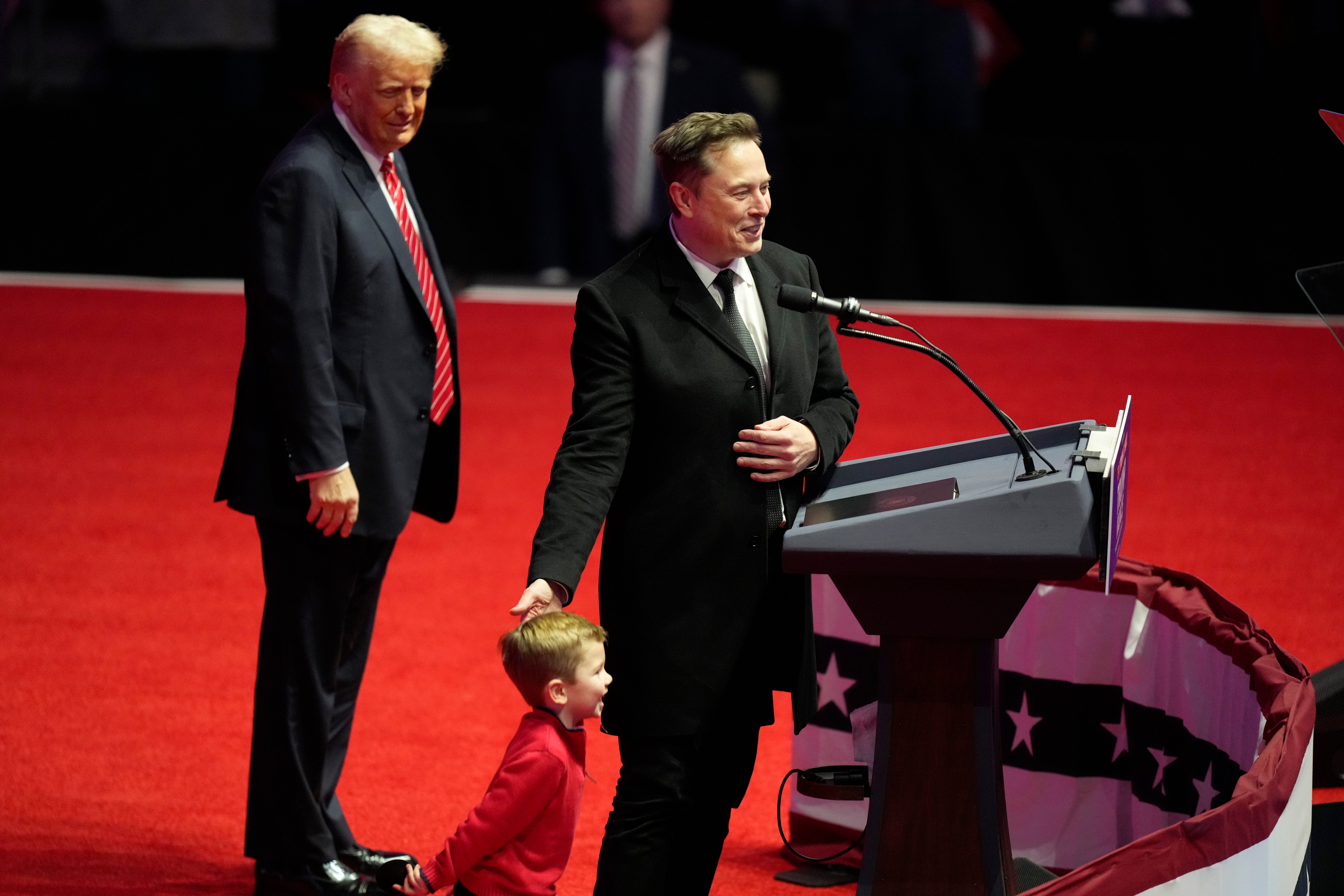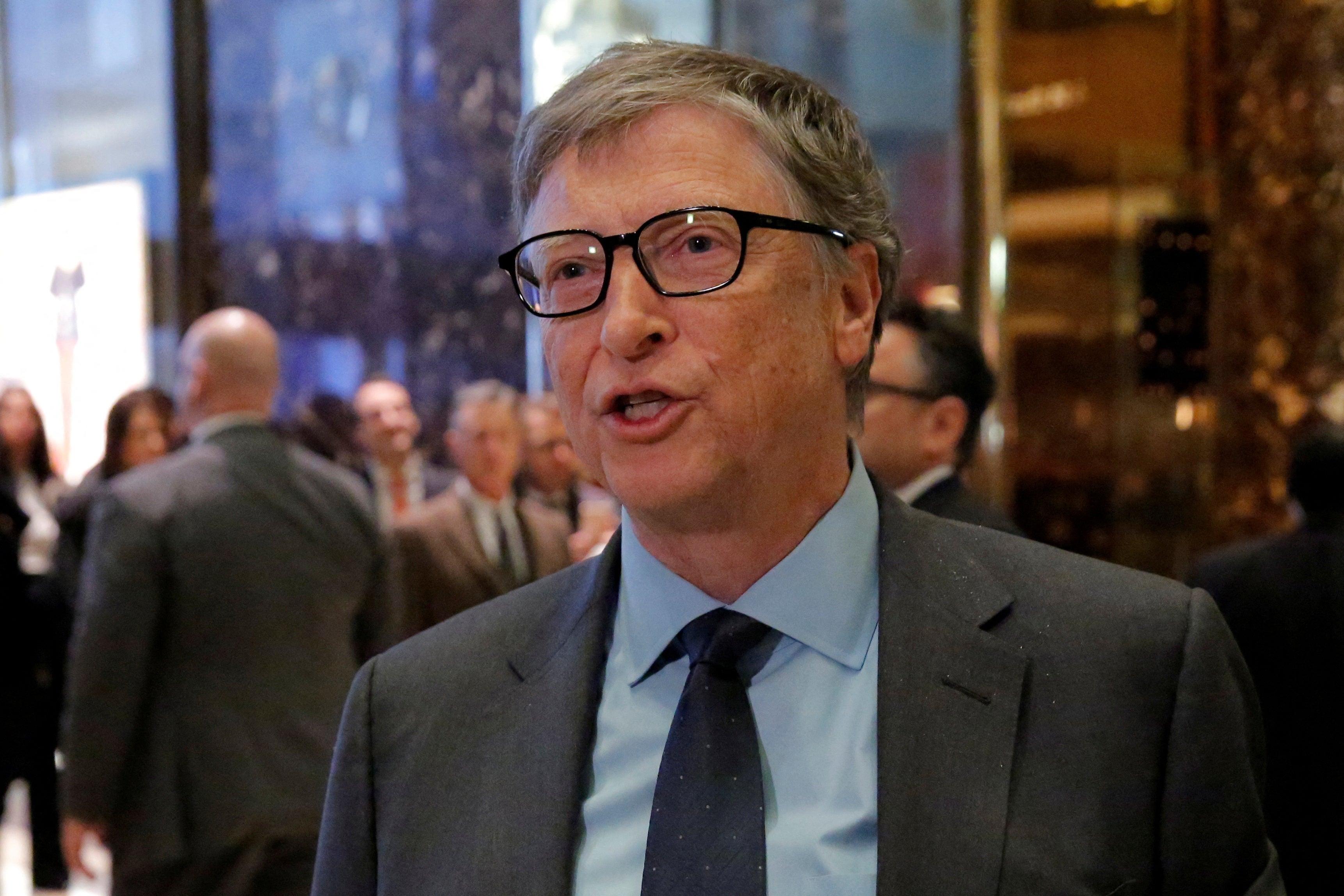
Bill Gates said in a wide-ranging interview with The Wall Street Journal that many government departments can cut 10 to 15 percent of their budgets while cautioning against getting rid of entire groups.
Gates was asked about the shift in Silicon Valley from the focus on tech nerds to tech bros. Industry leaders have made clear that they want to be in President Donald Trump’s good graces, with Tesla and SpaceX CEO Elon Musk, Amazon founder Jeff Bezos, Meta CEO Mark Zuckerberg, Apple CEO Tim Cook and Google CEO Sundar Pichai all attending Trump’s inauguration on Monday.
“Well, I think they’re still nerds. As I can tell, they don’t deserve some new term, Jesus. They’re just as nerdy as they ever were,” said Gates.
“Early in the days of Microsoft, I didn’t believe in having an office in Washington, D.C. I later learned that was a mistake. I had kind of a purest view that I didn’t need to engage in talking to the government,” he added.
One of those “bros” or ‘nerds’ is Musk - who was tapped to lead the Department of Government Efficiency, aka DOGE, and has become part of Trump’s inner circle.
Gates hasn’t spoken directly to Musk for about 18 months and said he “admires a lot of the great work he’s done.”
“I think the idea that looking at government expenditures on a sort of zero-based budgeting approach could be a valuable thing,” he added. “I’m amongst the people who think the deficit needs to be brought down because otherwise, it will create a financial problem for us.”
Musk has suggested, and subsequently backtracked, that he would find cuts in the federal budget worth $2 trillion.
Gates was asked where he would look to make savings were he to be put in charge of DOGE.
“Given the numbers that they’ve tossed around, they’ll have to look at everything, including pension, defense, health care,” said Gates. “My view is most departments, there probably are, 10 to 15 percent.”
“I do worry a little bit that if you say, ‘Hey, let’s completely get rid of things, some of the things that have long-term benefits,” he added. “I obviously believe in HIV medicines, where the U.S. is keeping tens of millions of people alive. And if you cut those off, not only would they die when we have a cure on its way, but you’d have negative feelings … in parts of Africa.”
Gates argued that it “would be worse than never having done the thing at all.”
The billionaire said he was surprised by Musk’s obsession with some European politicians — he has frequently criticized U.K. Prime Minister Keir Starmer and recently spoke to Alice Weidel, the chancellor candidate for the far-right party Alternative for Germany.
“He finds time to do a lot of things,” said Gates.
Gates told The Journal that he recently spoke to French President Emmanuel Macron and European Commission President Ursula von der Leyen, but added that they’re “on their own” when it comes to how to handle Trump.

Gates himself has been no stranger to Trump and even met with him during the transition process. He told the paper that he recently had an “intriguing” three-hour dinner with Trump and his chief of staff Susie Wiles.
The billionaire said he asked Trump if the hunt for a cure for HIV could receive a similar boost that vaccine innovation received during the COVID-19 pandemic.
“We both got, I think, pretty excited about that,” said Gates. They also spoke about the work to eliminate polio.
“He was fascinated to hear what he could do to maximize the chance that during the next four years, that incredible milestone will be achieved,” the 69-year-old said. “I felt like he was energized and looking forward to helping to drive innovation. I was frankly impressed with how he showed a lot of interest in the issues I brought up.”
Gates donated $50 million to a pro-Kamala Harris super PAC before the election but didn’t directly endorse the then-Vice President and Democratic nominee, citing his need to have a good relationship with every U.S. administration in his work with the Gates Foundation.

The interview with the Journal hit on countless other topics. The Microsoft founder also spoke about how he probably would have been placed on the autism spectrum had he been a child today.
“It used to be autism had a fairly narrow definition that was clearly identifiable. But this idea that if you’re slow at socializing, you know, I have a behavior where I rock that bothers people, but that’s also common, so-called self-stimming … So I realized, ‘wow, there’s a bit of a pattern match there,’” Gates told The Journal.
“I didn’t behave in a standard way, and yet, you know, that deep concentration that got applied to math and science and eventually to all those programming experiences I had ... became a strength,” he added.







